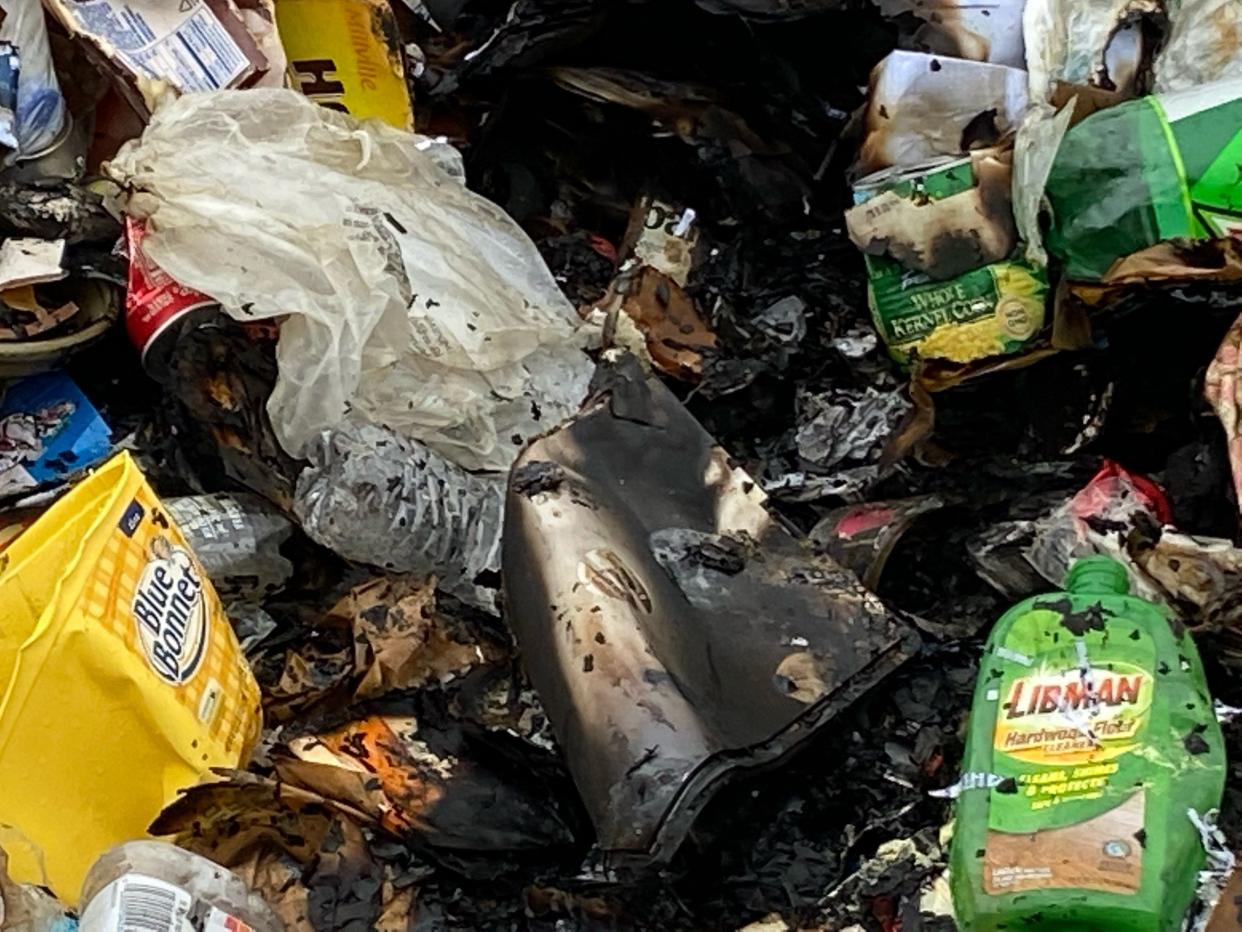Don't put lithium-ion batteries in trash, Rumpke warns after garbage truck fire

Rumpke is asking central Ohio residents to properly dispose of electronics with lithium-ion batteries after a laptop apparently caught fire inside one of its garbage trucks, forcing the driver to dump his trash load in a gas station parking lot.
On Tuesday, Columbus Division of Fire was called to a report of a garbage truck fire in the 900 block of Dressage Trace in the Jefferson Chase apartments complex off North Waggoner Road in the Blacklick area of Columbus' Far East Side.
Rumpke reported the driver took "immediate and appropriate action" by driving the truck out of the apartment complex and pulling into the parking lot of a nearby Turkey Hill gas station at the corner of North Waggoner and Kennedy roads, where he dumped his load of trash.
Firefighters from Columbus Fire Station 35, located nearby on North Waggoner, responded there and put out the fire. Rumpke said it had a crew clean up the dumped trash.
The cause of the fire was determined to be from a lithium-ion battery from a laptop improperly thrown in the trash, Rumpke said.
Lithium-ion batteries, which are rechargeable and used in everything from handheld electronics to vehicles, can store a lot of power in a small space. However, when the batteries fail, overheat or in this case potentially crushed by the compression system of a garbage truck, they can release flammable, toxic gases that can spark a fire that can be difficult to extinguish.
The New York Fire Department reports four deaths and 79 injuries in the city last year resulting from lithium-ion batteries. So far this year, NYFD says the batteries have been connected to six deaths and 139 injuries.
Battery manufacturers say only one in 10 million batteries fail, and note that can occur from dropping and damaging batteries, using incorrect chargers with electronic devices that can lead to overheating and other factors. Safety experts say a battery that seems to take longer and longer to charge could be a sign a battery is failing and should be replaced.
Jeff Meyers, east area communications manager for Rumpke, urged residents to avoid throwing lithium-ion batteries or devices containing them in the trash or recycling. Instead, he urged residents to contact their local solid waste management district or retailers who sell electronics for appropriate disposal options.
The Solid Waste Authority of Central Ohio (SWACO) provides a "Recycle and Reuse Search Tool" that identifies where residents can take rechargeable batteries as well as cellphone batteries for recycling. In Columbus, for example, residents can drop off rechargeable batteries at SWACO's Household Hazardous Waste Center at 645 E. 8th Ave.
To safely prepare batteries for recycling, SWACO recommends residents either place each battery in its own clear plastic bag before placing it in a storage container or tape the battery terminals with clear packing tape or non-conductive electrical or duct tape, keeping the label visible so that the battery type can be identified.
Cbehrens@dispatch.com
Cbehrens@dispatch.com
This article originally appeared on The Columbus Dispatch: Garbage truck fire caused by lithium-ion battery in laptop, Rumpke says

